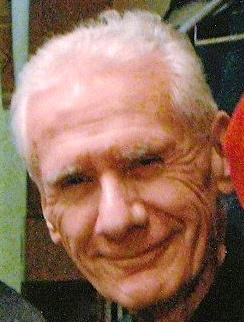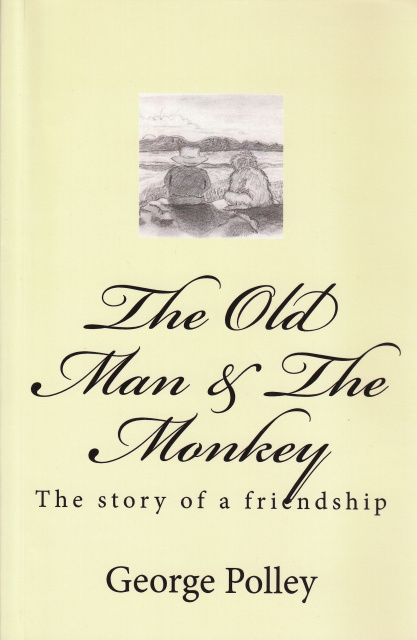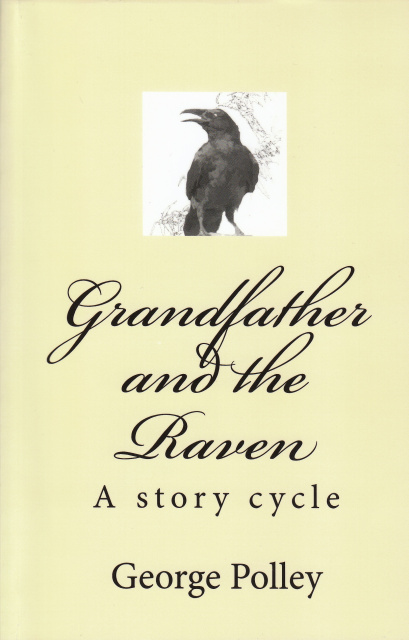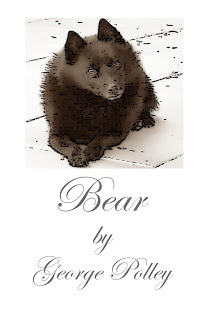George Polley

George Polley
Bio:
George Polley is the author of twelve books: “Living and Working in the 21st Century”, “Things I’ve Learned From the ‘Old’”, “Seeing: Collected poems, 1973-2000”, “Fernandez’ Tale: A Short Story Collection”; four mental health booklets: “Dysfunctional Family Culture: Recognition and Recovery”, “Beginning The Journey of Recovery”, “Reality: What Is It and Why Is It Important?” and “Being Here: Exercises for Renewed Living”. Two poetry chapbooks and a poetry “broadside” were published in 1975 in St. Paul, Minnesota by Tangent Publications and the Smith Park Poetry Series respectively.
Recent books are: “The Old Man and the Monkey”, “Grandfather and the Raven”, and “Bear”, the story of a boy and his unusual dog. A poetry collection, “Celebrations: Collected Poems, 1973-2012” will be published by Taylor Street Publishing sometime in 2013.
His poetry, short stories and articles have appeared in various publications, including “The Enchanted Self”, “The Palestine Chronicle”, “Expanding Horizons”, “Maturing”, “North Country Anvil”, “North American Mentor Magazine”, “South Dakota Review”, “The Lake Street Review” (Minneapolis), “Wine Rings”, “Crow’s Nest”, “The McLean County (Illinois) Review” and “River Bottom”.

The Old Man and the Monkey
Genre: Children, General Fiction, Literary Fiction, Fable
Amazon Kindle US: http://www.amazon.com/Old-Man-Monkey-story-friendship/dp/1451543778/ref=sr_1_1?s=books&ie=UTF8&qid=1359933294&sr=1-1&keywords=george+polley+books
Amazon Kindle UK: http://www.amazon.co.uk/Old-Man-Monkey-ebook/dp/B003T0GJ4E/ref=sr_1_1?s=books&ie=UTF8&qid=1359933663&sr=1-1
Smashwords: Not available
Barnes and Noble: Not available
Blurb :
“The Old Man and The Monkey” is a fable about a village elder in Japan and the large monkey who became his friend over the last five years of his life. Since the villagers don't like monkeys, none of them like the friendship between the old man Genjiro Yamada and Yukitaro ("snow monkey" in Japanese). But Genjiro Yamada refuses to give up the friendship, even when his wife objects to it. After all, monkeys are nuisances and thieves. But over time, both Genjiro’s wife and the villagers come to grudgingly accept him, especially when, on several occasions, they receive a special blessing from him.
As the old couple’s grandson, Junichiro Fujii says: It "is the story of how a monkey became the good friend of an old man and his wife. It has taught me much about the possibilities of friendship and kindness and the bonds that exist between man and man and man and animal when we are open to them. It is an expression of who my grandfather was, a man of peace who showed compassion to every living being, and my grandmother, who was his lifelong companion, friend and light of his life."
Excerpt:
In a small park near one of the rivers that run through the city of Asahikawa, Hokkaido, there is a bronze statue of an old man and a monkey seated side by side on a wide flat stone looking out over the river and the mountains. The monkey is bigger than ordinary snow monkeys; the top of his head reaches to the old man’s shoulder.
Looking at the bags under his eyes, one can see that the monkey, like the man, is elderly. Affixed to the base of the statue is a bronze plaque that reads: “Genjiro and Yukitaro.” These two old friends sit and warm themselves in silence as the years and seasons pass.
As Long as long as the statue has been there, people passing by have paused, wondering how a monkey and a man could become friends because, as everyone knows, monkeys are pests and can be dangerous when humans get too close. Some people tell each other that such a friendship is unnatural, and that because it is unnatural, is impossible. Others believe that Genjiro and Yukitaro are characters that the artist made up. But everyone agrees that the statue is appealing, because the two old friends have such an air of tranquility and peace about them that people come and sit down next to it to enjoy their lunch, or to just sit quietly and look out at the river and the mountains, later commenting on how peaceful the experience was.
So it is that the old man and the monkey receive a constant stream of visitors who sit and enjoy their company in silence and take something of them away to warm themselves.
No one believes the old man and the monkey were real; but I know that they were because the old man was my grandfather, Genjiro Yamada, and Yukitaro was his companion and friend for the last five years of his life.
Now is the time for me to tell their story and reveal for the first time how an improbable friendship like that between a man and a monkey happened, how it was good, and how it ended.
One
Every day Genjiro, an old man of seventy-five, walked to a rise near his house, sat on a broad, flat stone and looked out over the fields that lay scattered across the valley below. It was peaceful there: the colors changed with the seasons, the river meandered back and forth across the valley floor as it made its way to the sea, the dark forested mountains rose in the north and west, and in winter everything was covered with a brilliant white blanket of snow.
The rise with its broad flat stone was where Genjiro felt most at peace and at one with every living thing. He called it his “looking place.” It was one of four reasons he bought his house when he was searching for a house that would become his and Harue’s home. The second reason he bought the house was that when Harue saw it, she fell in love with it. It was big enough for the two of them and the children they would have, and it had ample room for a small garden where she could grow the vegetables and flowers that she became famous for.

Grandfather and the Raven
Genre: Children, General Fiction, Literary Fiction
Amazon Kindle UK: http://www.amazon.co.uk/s/ref=nb_sb_noss?url=node%3D341689031&field-keywords=george+polley%2C+grandfather+and+the+raven
Smashwords: None
Barnes and Noble: None
Blurb: “Grandfather and the Raven” is the story about a grandfather and a big raven that becomes his friend and companion as the two of them strolled around the neighborhood, encountered a nasty little dog, met a boy that wanted to run (but didn’t know how), chased away a thieving crow, annoyed grandmother, got into a silly argument over who said “Nevermore” first, Edgar Allan Poe or, as the raven insists, an old raven saying. And this was only a few of their adventures, most of them causing grandmother to roll her eyes or mutter her annoyance, especially when the big raven dropped by with a gift in his beak one afternoon just as she and grandfather were sitting down to eat.
Excerpt:
One morning while grandfather was out walking, a big raven flew down and lit in front of him, stopping him in his tracks. “Kaaaaaa! ” the raven said. Then, raising his long black beak, he looked up at grandfather and repeated himself with another loud, raucous “Kaaaaaa!”.
“Well,” replied grandfather, “what do you want with me?” Mystified as to why this big raven had flown down and blocked his path, grandfather stopped, looked down at the big bird, and scratched his chin. When the raven repeated himself, grandfather said: “Well, I don't understand raven talk, but you do have my attention. Can you be any clearer?”
“Kaaaaaa” the raven replied, a little more softly this time. “Kaaaaaa.” And he flew up and circled grandfather twice, his big black wings making whooshing sounds, before landing a bit further down the sidewalk and hopping a few steps away from him.
“Hmmmm,” grandfather said, more to himself than to the bird. “It seems that you want me to follow you. Is that right?”
“Kaaaaaa,” the raven said, hopping briskly away down the sidewalk before stopping and turning around to see if the man was following. Seeing that he was, the raven took a half-dozen or more steps down the sidewalk, then flew up and lit on a bright yellow fire hydrant a short distance away. When he saw that grandfather was moving slowly toward him, he jumped down and strode in a confident, swaggering raven-way toward grandfather. “Kaaaaaa” he said again, more softly than before.
Squatting down, grandfather held out his right hand toward the bird, who responded by hopping forward, then jumping up on it. “Well,” grandfather said, looking the big raven in the eye, “why have you come into my life this morning? Can you tell me?”
“k-k-k-k-k-k-k-k” the raven replied, sounding very much like a rusty door hinge; “k-k-k-k-k-k.”
“You'll have to be clearer than that,” grandfather replied, starting when the big bird flew up and landed on top of his head for a moment before flying down and making a two-hop landing facing grandfather. “Hmmmm,” said grandfather, stroking his chin. “You gave me quite a start there, flying up and landing on my head. Before you do something like that again, it will help if you warn me first.”
“Kaaaaaa” the raven replied, nodding his head several times. Then he flew forward and landed at grandfather's feet and looked up at him with his shining black eyes.
“Well,” said grandfather, “what do you want of me?”
Cocking his head this way and that, the big bird turned and hopped away, stopping every now and then to look back to see if grandfather was following. Grandfather was, albeit somewhat slowly and doubtfully.
“I wonder,” grandfather said to himself, “where is this raven taking me? Ravens are tricky birds. I wonder if he's trying to play a trick on me.”
But in spite of some misgivings, grandfather decided to follow the raven, at least for a while, to see where he was leading him, if anyplace at all other than to the end of the block.
At the end of the block, the raven stopped, flew up onto a fencepost and waited for grandfather to arrive. Then, quite suddenly, he flew away.
“Well,” grandfather said out loud to no one at all, “it seems that you've been playing a trick on me.”
And so grandfather went on his way, which was for a walk around his neighborhood to admire the gardens, scratch the ears of several small dogs that came running up to greet him, and talk with his neighbors. By the time he got home, he had forgotten about the raven until he was talking to his wife about his walk.

“Bear”
Genre: Children’s literature (boys, age 10-12)
Amazon Kindle US: http://www.amazon.com/Bear-ebook/dp/B009RBK2CE/ref=tmm_kin_title_0?ie=UTF8&qid=1360106389&sr=1-3
Amazon Kindle UK: http://www.amazon.co.uk/Bear-ebook/dp/B009RBK2CE/ref=sr_1_1?s=digital-text&ie=UTF8&qid=1360106498&sr=1-1
Smashwords: None
Barnes and Noble: None
Blurb: Bear is a big brown dog that looks like a bear. He also acts like a bear, except that he’s gentle, he’s a great companion, he listens well (unlike most dogs, who fall asleep after a dozen words or so), and likes everyone except for bullies and giant brown rats. He also seems to have some special powers, like projecting his voice and sensing danger. And he has a blood-chilling, terrifying roar when he needs to use it. The odd thing is that both of his parents and his litter mates are registered Golden Retrievers. How big is he? When full grown, about eighty pounds.
He lives in Seattle with Andy Lindquist and his parents, John And Mary. And from there, their adventures with Bear begin. Oh, there’s an annoying local radio and tv talk show host, too, named Denny Best, who detests Bear.
Excerpt:
“Tomorrow’s your birthday, Andy; are you ready?”
“Yeah ... I guess so.”
“Why so glum; still thinking about Frisbee?”
“Yeah ... this is the first time he won’t be here.” Just a week earlier, his little fox terrier had been chasing another car—after being told at least a thousand times not to—when he caught it and it ran over and killed him. Thinking about it took all the fun out of having a birthday party. With Frisbee inside a cement box buried between the cherry tree and the tool shed, it kind of took the fun out of celebrating anything.
“I know, son. He was a nice dog, wasn’t he? Except for chasing cars.”
“Yeah; he just wouldn’t stop!”
“Remember what your dad said about fox terriers?”
“Yeah ... they chase things.” True about Frisbee; he even chased bugs. “I don’t want another dog that chases things, mom, not ever.”
“Mmmm.” Reaching down, she gave her son a hug. She remembered her own little fox terrier, Tina; so tiny—“Tiny Tina” her mother called her, laughing—yet so fierce when it came to chasing things.
“It’ll be a good birthday party, Andy; you’ll see. In the meantime, it’s okay to grieve Frisbee’s death. I loved him, too.”
***
“They’re here! I think you’ll like the friend Uncle Bill and Auntie Alma brought with them. His name is Bear.” Holding the screen door open for him, she stood aside so he could go in first. That’s when he saw him, standing in the doorway from the dining room, about five times bigger than Frisbee, looking just like a small brown bear.
“Is that Bear?” Andy stood and gawped at the big brown bearlike dog, who looked back at him with golden brown eyes.
“Yep, that’s him,” Uncle Bill said, poking his head into the kitchen. “Bear, meet Andy, your new friend.”
“You mean, he’s ours?”
“That’s right, Andy, he’s yours. From me and your Auntie Alma and your cousins, Marty and Jan.”
“Oh, wow, thank you!”
Bear showed his teeth in an ear-to-ear grin and wagged his short, stubby tail. Then he did what no one had seen him do before; he went up to Andy, stood on his hind legs, and hugged him, just like the bear in his dream.
“Oh, for Heaven’s sakes,” Auntie Alma said. “I’ve never seen him do that before, have you, Bill?”
“No, dear, I haven’t. I guess there’s a first time for everything, eh? I guess you could say he feels right at home.”
And that is just the way Bear felt. When he set eyes on Andy, he knew he was where he was supposed to be. And Andy, hugging him back, felt the same. If there ever was a match made in heaven between a boy and a dog, this was definitely it.
You can follow/friend me at:
Twitter https://twitter.com/georgepolley
Facebook: https://www.facebook.com/gwp79
GoodReads: http://www.goodreads.com
Author Links: www.geogepolleyauthor.com

 Hercules editing and consulting services 2011-2020
Hercules editing and consulting services 2011-2020